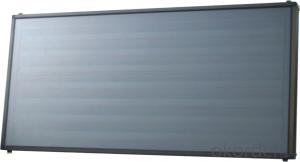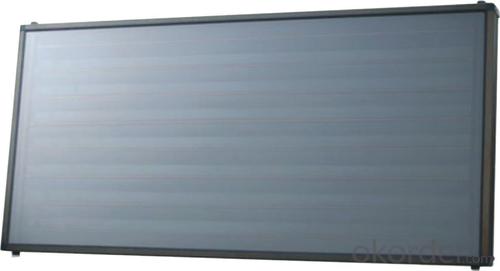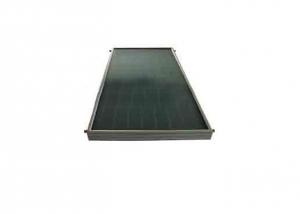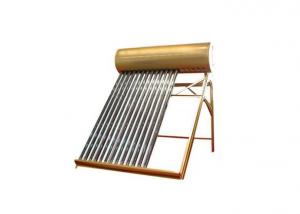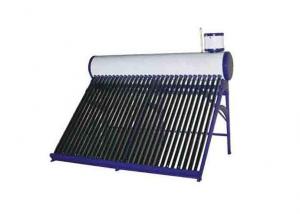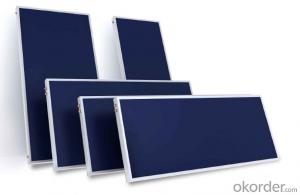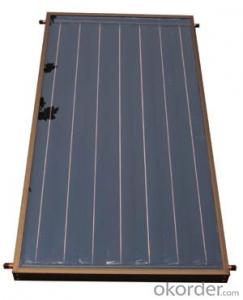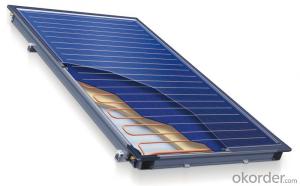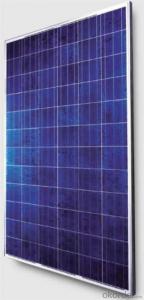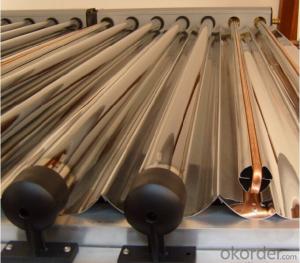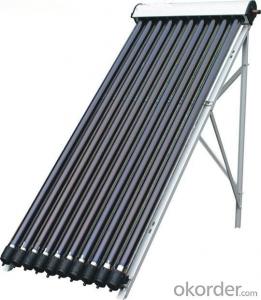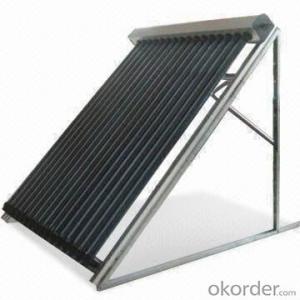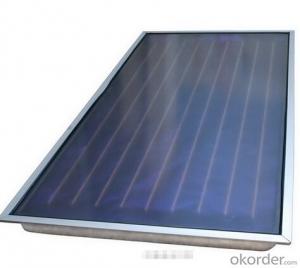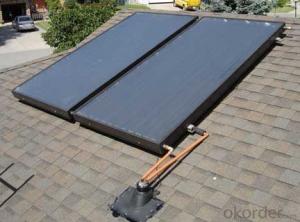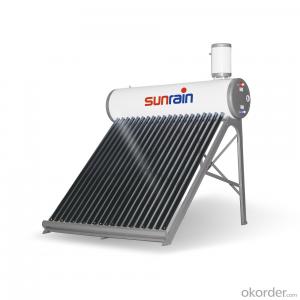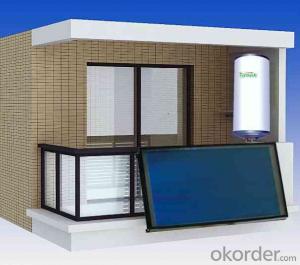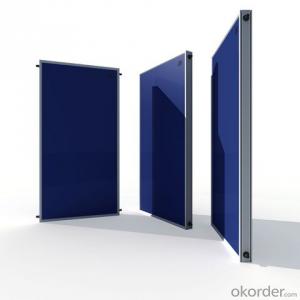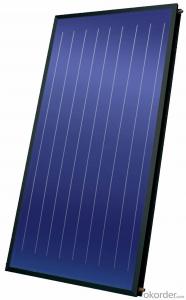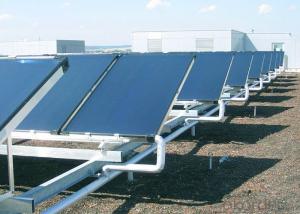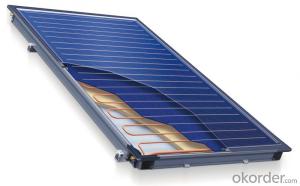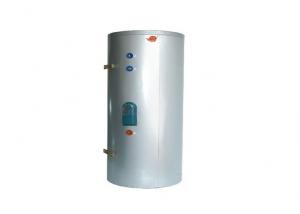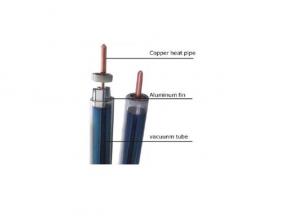Dome-Shaped Solar Energy Collector with Solar Thermal Absorber and Vacuum Solar Collector with Heat Pipe
- Loading Port:
- Shanghai
- Payment Terms:
- TT OR LC
- Min Order Qty:
- 500 pc
- Supply Capability:
- 10000 pc/month
OKorder Service Pledge
Quality Product, Order Online Tracking, Timely Delivery
OKorder Financial Service
Credit Rating, Credit Services, Credit Purchasing
You Might Also Like
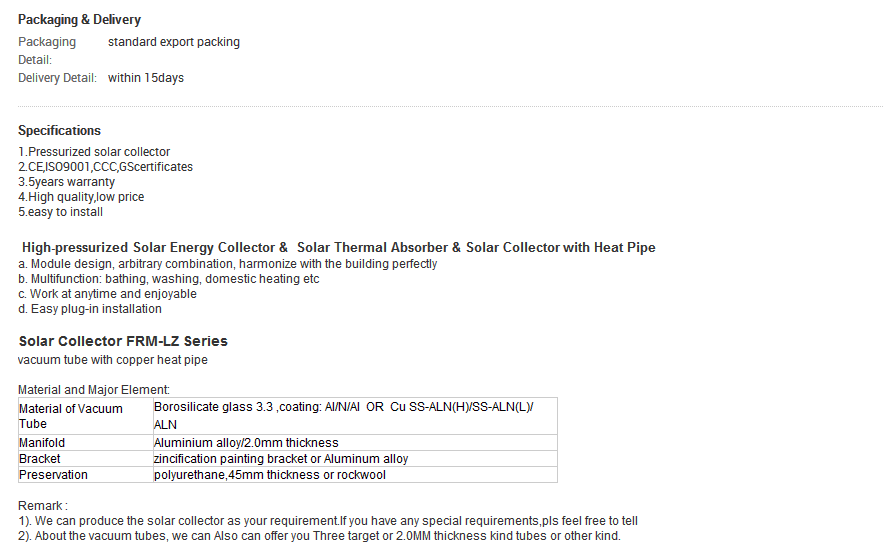
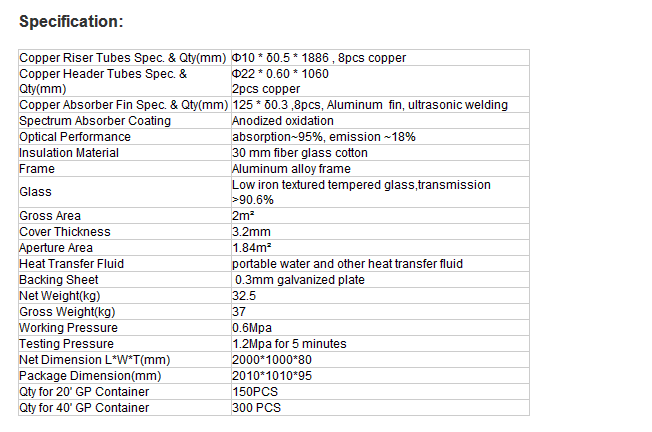
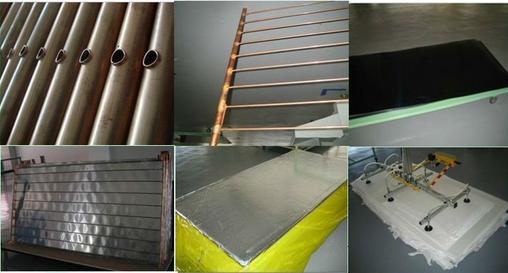
- Q: Can solar collectors be used for heating retirement homes and assisted living facilities?
- Yes, solar collectors can be used for heating retirement homes and assisted living facilities. Solar thermal systems can efficiently capture sunlight and convert it into heat energy, which can then be used for space heating and hot water. Implementing solar collectors can help reduce energy costs and carbon emissions, making it an environmentally-friendly and cost-effective heating solution for retirement homes and assisted living facilities.
- Q: Are solar collectors weather-resistant?
- Yes, solar collectors are weather-resistant. They are designed to withstand various environmental conditions, including rain, snow, wind, and extreme temperatures. The materials used in their construction are durable and can withstand the elements, making them suitable for outdoor installation in all types of weather conditions.
- Q: What is the weight of a solar collector?
- The weight of a solar collector can vary depending on its size and design. On average, smaller residential solar collectors may weigh around 100-200 pounds, while larger commercial or industrial collectors can weigh several thousand pounds.
- Q: Can solar collectors be used for cooling?
- Yes, solar collectors can be used for cooling through the process of solar-powered absorption refrigeration.
- Q: What are the different types of solar collectors?
- There are three main types of solar collectors: flat-plate collectors, evacuated tube collectors, and parabolic trough collectors.
- Q: Can solar collectors be used in areas with limited access to distribution networks?
- Yes, solar collectors can be used in areas with limited access to distribution networks. Solar collectors, such as solar panels, can generate electricity locally, reducing the dependency on centralized distribution networks. This makes them suitable for remote or off-grid locations where establishing or accessing distribution networks may be difficult or expensive.
- Q: Can solar collectors be used for heating community centers?
- Yes, solar collectors can be used for heating community centers. Solar thermal systems can collect and convert sunlight into heat, which can then be used for space heating and providing hot water in community centers. This renewable energy source is environmentally friendly, cost-effective, and sustainable for meeting the heating needs of community centers.
- Q: Can solar collectors be used for swimming pool heating?
- Yes, solar collectors can be used for swimming pool heating. Solar collectors, such as solar panels or solar thermal systems, can absorb sunlight and convert it into heat energy, which can be used to heat swimming pool water. This is a cost-effective and sustainable way to maintain the desired pool temperature without relying on traditional heating methods.
- Q: Can solar collectors be used for generating electricity on bicycles?
- Generating electricity on bicycles is indeed possible using solar collectors. These collectors can be mounted on the bicycle frame or integrated into accessories like panniers or bike trailers. Through the conversion of sunlight, these solar panels produce electricity that can be used to power different devices and accessories on the bike. The electricity generated by these solar collectors can either be stored in batteries or used directly to power lights, GPS devices, smartphones, or even electric motors in e-bikes. This proves particularly beneficial for long-distance cycling or bike touring, where access to electrical outlets may be limited. By utilizing solar energy, cyclists can reduce their dependence on traditional power sources and make their rides more sustainable. Nevertheless, it is important to note that the amount of electricity generated by solar collectors on bicycles may not be sufficient to completely power the bike itself. Due to the small size of the solar panels, their energy generation is limited, especially when considering the power requirements of electric motors. Therefore, solar collectors on bicycles are typically used to complement the main power source, such as a battery pack, rather than replacing it entirely. In conclusion, solar collectors can effectively generate electricity for various accessories and devices on bicycles, enhancing the sustainability and self-sufficiency of cyclists. Although they may not fully power the bike, they provide a valuable alternative energy source that can be utilized while on the move.
- Q: Can solar collectors be used for heating parking structures?
- Yes, solar collectors can be used for heating parking structures. Solar collectors, such as solar thermal panels or air collectors, can harness the sun's energy and convert it into heat, which can be used for heating purposes. By installing solar collectors on parking structures, the heat generated can be utilized to warm the interior spaces, reducing the need for traditional heating systems and promoting energy efficiency.
Send your message to us
Dome-Shaped Solar Energy Collector with Solar Thermal Absorber and Vacuum Solar Collector with Heat Pipe
- Loading Port:
- Shanghai
- Payment Terms:
- TT OR LC
- Min Order Qty:
- 500 pc
- Supply Capability:
- 10000 pc/month
OKorder Service Pledge
Quality Product, Order Online Tracking, Timely Delivery
OKorder Financial Service
Credit Rating, Credit Services, Credit Purchasing
Similar products
Hot products
Hot Searches
